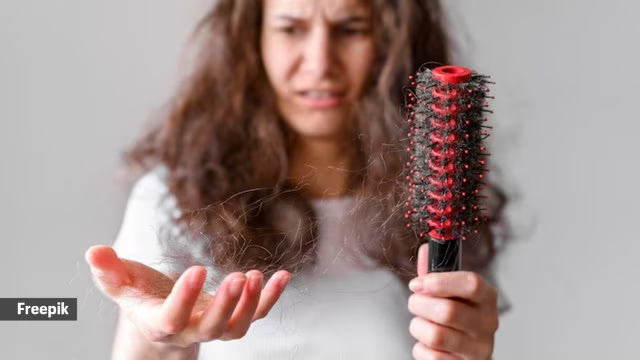As social media platforms buzz with tretinoin’s ability to combat hair loss, we verify its effectiveness

Tretinoin, a powerful retinoid that is widely prescribed for its remarkable ability to combat acne, has recently taken the beauty world by storm for an entirely different reason – its potential to promote hair growth.
While traditionally utilized as a topical treatment for acne vulgaris, this vitamin A derivative has unexpectedly found itself at the center of a viral trend among those seeking to combat hair loss and stimulate thicker, fuller locks.
As social media platforms buzz with before-and-after images showcasing tretinoin’s hair-enhancing effects, we speak with experts to confirm if this works.
How does tretinoin, traditionally used for acne treatment, promote hair growth?
Dr Ajay Rana, dermatologist, surgeon, aesthetic physician, and founder of ILAMED and Dermalyn Aesthetics, confirms, “Tretinoin, a retinoid derived from vitamin A, promotes hair growth through several mechanisms.”
These include:
Cell Proliferation and Differentiation: Tretinoin accelerates the turnover of skin cells, promoting the proliferation and differentiation of epithelial cells in hair follicles. This can potentially rejuvenate dormant follicles and stimulate new hair growth.
Blood Flow Enhancement: Tretinoin improves blood circulation in the scalp, ensuring better delivery of nutrients and oxygen to hair follicles, thereby fostering a healthier environment for hair growth.
Collagen Production: By stimulating collagen synthesis, tretinoin can strengthen the structural integrity of hair follicles.
Synergistic Effect with Minoxidil: Tretinoin enhances the absorption and efficacy of minoxidil, a common hair growth treatment when used together. It increases the skin’s permeability, allowing more minoxidil to reach hair follicles.
Advantages and disadvantages of using tretinoin for hair growth
Dr Prerna Sikka, dermatologist and cosmetologist at Dr Karishma Aesthetics elaborates, “Compared to alternative hair growth treatments such as minoxidil or finasteride, tretinoin offers unique advantages and disadvantages. While it can potentially enhance hair growth by improving follicle function, its effectiveness may vary among individuals. Those with mild to moderate hair loss or looking for a non-invasive option are good candidates to start using topical tretinoin.”
Patients already using minoxidil or not responding to minoxidil alone may benefit from adding tretinoin to their routine, as it enhances the efficacy of minoxidil. Tretinoin however can cause scalp irritation, redness, dryness, and sun sensitivity, these being the main disadvantages, she asserts.
Specific types of hair loss or conditions where tretinoin is particularly effective
According to Dr Rana, tretinoin, especially in combination with minoxidil, has shown promise in treating androgenetic alopecia, a hair loss condition. “Individuals experiencing diffuse thinning might benefit from the follicle-stimulating properties of tretinoin.”
Dr Sikka however reminds us that its effectiveness can depend on individual factors like the severity of hair loss and scalp condition. Consulting a dermatologist is crucial to determine suitability and realistic outcomes.
Source – Indian Express
The content published on the website is for creating awareness and educating purposes only. This shall not be considered as a substitute for professional advice or prescription. The results mentioned on the website may vary from person to person as each case is different.

